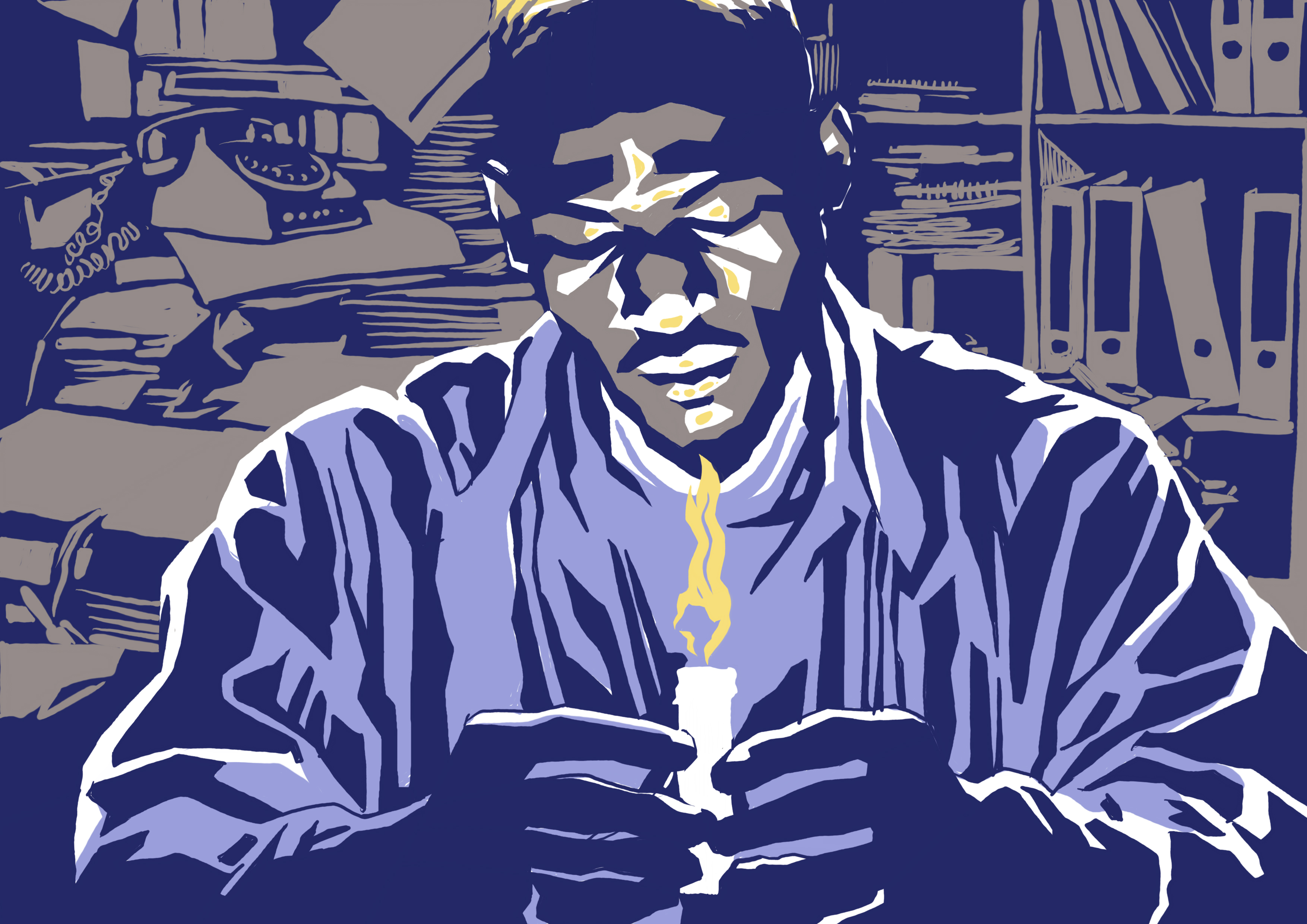In June 2020, in a rare move ahead of upcoming, and contested, elections in 2021, President Museveni fired the then-Executive Director of the National Identification and Registration Authority (NIRA), Judy Obitre-Gama. Obitre-Gama had been under investigation for corruption and incompetence since 2018, over failing to account for the Uganda Shilling equivalent of over US$700,000. Formally budgeted to pay for a project to register children in schools, and for laptops and batteries, the money had been funnelled to individual accounts, including to NIRA’s chief accountant’s personal bank account.
At the time of the sacking, the President and his ministers promised that there would be no more corruption, or even incompetence, in the document-processing arms of government. Ugandans held their thumbs. It might just happen, they hoped, because pockets of state service had improved before. While aging autocrat Museveni (79), in his decades of ruling Uganda since 1986, has been known for his (largely unsuccessful) efforts to run the whole state by himself, he has at times achieved incidental and irregular successes in certain sectors. When he put his mind, and a battery of loyal functionaries, to it, the Uganda Revenue Service perked up for a while. So did Kampala City management.
Was it now the turn of citizens’ documents, from IDs to birth certificates to driving licences, to be handled smoothly and speedily from now on? Ugandans were even promised a new electronic national ID card – also to be used for a spick-and-span new voter registry for the next elections – scheduled for 2026.
No employment, no SIM card, no bank account
At the time, Winnie Tumwesigye would have accepted any sort of ID, if it had her name on it and a stamp. She first applied for a national ID in 2014 and was repeatedly sent home empty-handed with the message that ‘’it was still in the system.” She was still waiting at the time of Obitre-Gama’s exit in June 2020. She was living without a bank account, unable to open one without an ID, with a SIM card registered in a friend’s name, and working for cash – since all formal jobs also required ID. Uganda’s turbulent 2021 elections, which, for the first time, challenged Museveni’s reign, passed her by, too.
In early 2023, Tumwesigye tried again, hoping that things might have changed.
They hadn’t.
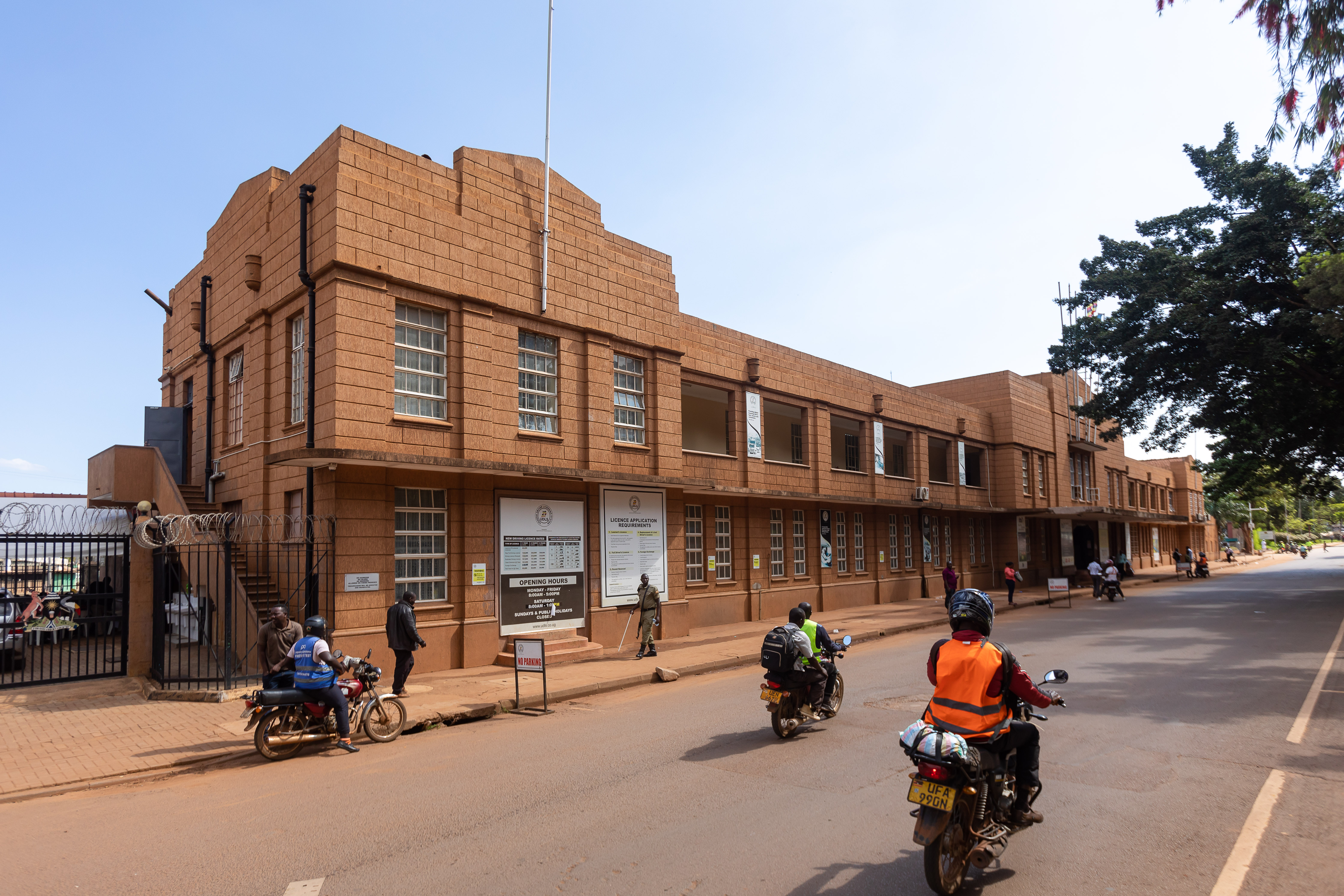
Bribes for “checking the data”
Once again, she found officials, this time at the NIRA office close to her home near Nkumba University in Kampala, asking for money just to get an appointment. After paying the Sh 50,000 (US$13) for the appointment, another Sh 150,000 was requested to “check the data in the system.” Then another Sh 100,000 was needed to “have the data transferred” from the office where she first applied. That request came with a warning that she would have to fork out more money to have the data, which apparently was faulty, “corrected.” Tumwesigye asked for a few days to find the money. When she returned, she was told the official handling her application had been transferred, and she would have to start the process again. It is an all too familiar story in Uganda, where, despite people having been fired for corruption, corruption and mismanagement in the system have continued, nevertheless.
One of the promises made at the time of Obitre-Gama’s exit did come to fruition, however: the one about the driver’s licenses. The Ugandan Driver’s License Service, UDLS, has been praised across the board by citizens on social and established media, physical gatherings, and WhatsApp groups alike. “So smooth, I was in and out in an hour” and “amazingly efficient process” are just two of the incredulous comments by happy people, including several who were asked for their experiences in the course of this investigation. Out of 721 responses to an August 2023 Twitter poll by Jimmy Spire Ssentongo, who is simultaneously a columnist, cartoonist, stand-up comic, and a university professor, asking for nominations of an exemplary government agency in Uganda, specifically in terms of service quality and integrity, the UDLS emerged as a resounding favourite.
The driver’s license office is a resounding favourite
A rallying cry for change
Uganda has recently experienced a whirlwind of digital activism, targeting the country’s lethargic public sector, where delays and corruption are more the rule than the exception. After an initiative taken by cartoonist, columnist, and university professor Jimmy Spire Ssentongo, tens of thousands of citizens have taken up his Twitter/X “exhibition” hashtag to expose ills ranging from airport corruption to potholes and dilapidated hospitals. Wielding their keyboards and cameras, the rallying cries for brighter, more accountable public institutions began earlier in January, as Ugandans stormed TikTok and Twitter to expose corruption festering within Uganda's sole international gateway, Entebbe International Airport. The surge reached its zenith between April and June of 2023, when the #potholexhibition fervently confronted the deplorable state of the roads in the heart of Uganda's capital, Kampala, capturing the treacherous craters and crevices that had become emblematic of government negligence. The #UgandaHealthExhibition then illuminated the nation's beleaguered healthcare sector. With painstaking precision, citizens revealed the alarming inadequacies, from understaffed hospitals to woeful resource shortages, that have left countless Ugandans without medical services. The sheer force of public outrage has compelled authorities to act in some instances, as in the case of the UDLS. The struggle, meanwhile, continues.
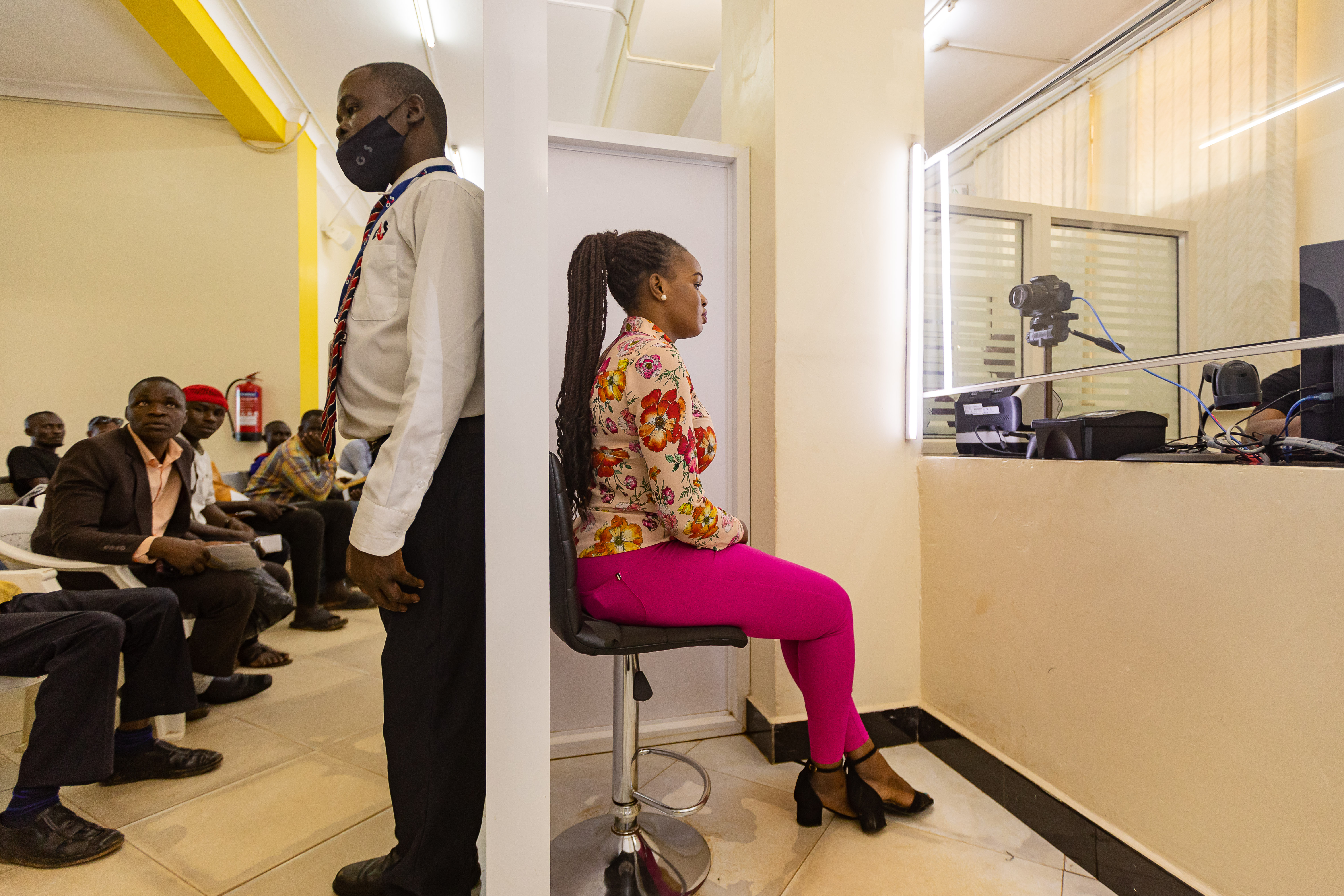
An island of excellence
When entering an UDLS office, the contrast to most other offices in the Ugandan civil service is glaring. There are no day-long throngs of people waiting in blazing sun or rain in the open air, preyed upon middlemen, who move you forward for a fee. An appointment is an appointment here, and when you get to your official, all he or she does is check that you paid your license fee into the Uganda Revenue Authority’s bank account. They scan your bank receipt barcode, dig you up in the system, and process your application. Remarkably, the system uses the same database that NIRA uses – but UDLS staff can somehow work with your data without any extra payment. The UDLS’s responsiveness to queries, prompt resolution of issues, and transparent communication have garnered much praise as well.
The improved system originated in the private sector in 2003, when – because of what the Works and Transport Ministry at the time called “challenges” – the issuing of licenses had been privatised. The South Africa-based IT and card technology company Face Technologies was given the contract to manage the issuance of driving permits in Uganda, and simultaneously digitise the still paper-based system. “Within months, the private service provider reduced the time taken for an applicant to get a driving license from 1 month to 1 hour over the contract period,” says Commissioner of Transport Regulation and Safety at the Ministry of Works, Winston Katushabe, stressing that this was partially achieved “through close supervision of the company by the Ministry and the periodic technological improvements of the permit production system.”
The state was now running an efficient system
The arrangement continued until 2020, the year in which President Museveni fired the NIRA chief and promised to streamline all the state citizenry’s registration services. The concurrent decision not to renew the Face Technologies contract for the driver’s licenses triggered a public uproar. Citizens worried loudly and publicly that the quality of service that Ugandans had become accustomed to would deteriorate. The fact that (next to a 51% share for the state’s Uganda Securities Printing Company, USPC) a German company, Veridos, was still contracted as a partner, did little to assuage these concerns. Even Parliament, which had in 2019 urged the government to extend the Face Technologies contract for five years, shared these misgivings, and insisted on a gradual transfer back to government control, on condition that Ugandan civil servants would be trained at Face Technologies first, and branches would be expanded to improve accessibility.
The government then extended the Face Technologies arrangement, and agreed on the training and the extra branches, for one year. It did not relent on its decision that the state was to own the driver’s license office again.
When, to the surprise of tout Uganda, with millions having tightly held their thumbs, excellent service continued a year later, Works and Transport Minister Gen Katumba Wamala gloated. “Many Ugandans doubted our initiatives. They could not believe that our Uganda Security Printing Company could replace Face Technologies,” he wrote in an op-ed in Uganda’s Observer newspaper in February 2022. He added that he was now happy to note that “our efforts have paid off … UDLS is displaying a lot of promise, and we are improving for effective service delivery to all our clients.”
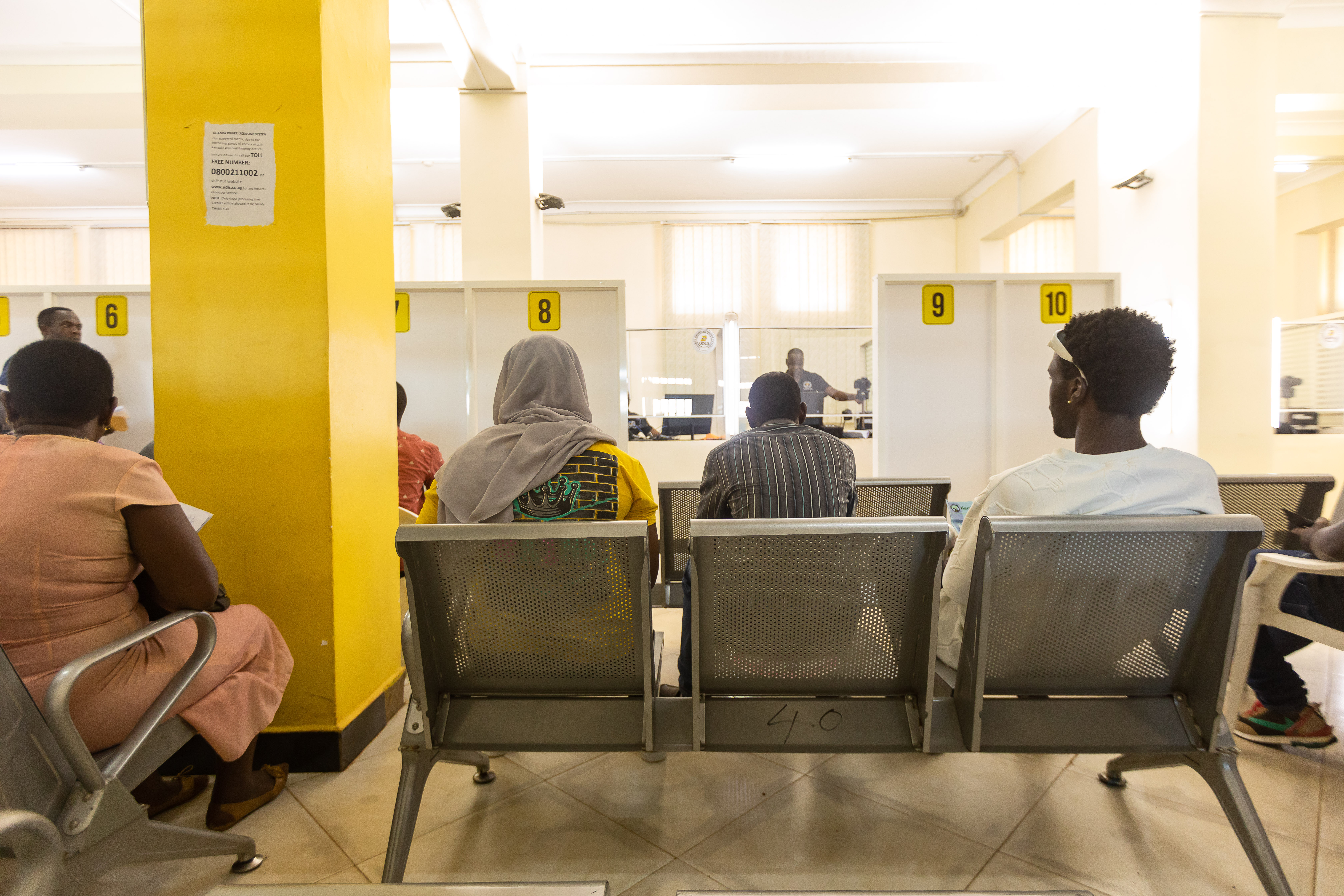
Service engineering
According to UDLS project coordinator Andrew Kagoda, the office has gone beyond simply replicating the work of Face Technologies and has even improved since. “The only thing we inherited from them [Face Technologies] is the database. We are offering even more security features now.” Furthermore, he adds, standards and even speeds have been upped since as well. “The Ministry gave us a service delivery timeline of one hour, so we had to make sure we are able to beat it. Actually, the quickest is eight minutes. And we serve over 2,000 people per day.” Kagoda explains further that a service level agreement signed with the Works Ministry also embeds efficiency in the design of operations, and UDLS is “constantly doing service engineering” to “identify and address any challenges.” According to the Ministry’s Commissioner Winston Katushabe, however, the UDLS’s success has much to do with the groundwork laid by Face Technologies. “The Ministry developed the capacity of staff during the contract time of Face Technologies,” he says. The Ministry then also set “Key Performance Indicators (KPIs) for the effective implementation of the project (….) and appointed a contract management team to closely monitor the achievement of that performance,” which is, he adds, still “constantly closely monitored.”
Separate sources told ZAM that plans are now underway to replicate the efficiency of the UDLS in other public offices, especially NIRA. Project coordinator Andrew Kagoda confirms: “The joint venture agreement (in the USPC-Veridos partnership that formed UDLS) identifies NIRA and the Passport office as entities for intervention.” How this happens will, however, depend on “what kind of service level agreements the respective entities adopt.” According to Kagoda, the excellence of UDLS will now start to spread throughout the Ugandan civil service in terms of both system efficiency and customer care. “We have had other institutions both in the private and public sectors come here to benchmark on what we are doing.”
The project coordinator promises replication
Other sources told ZAM that the traffic police are now harnessing the UDLS databases for traffic law enforcement, whereby a “points system” in future will see traffic rule violators’ points gradually depleted until their licenses are suspended. Sources within Home Affairs added that UDLS will also serve as a model for a redesign of NIRA and a new electronic ID card. Kagoda confirmed this, too, saying that the project is going to develop into a National ID system, where the state printers will design the system and also provide the documents, while the government agencies responsible, like NIRA, will continue with the operations of enrollment, printing, and issuing the respective documents.
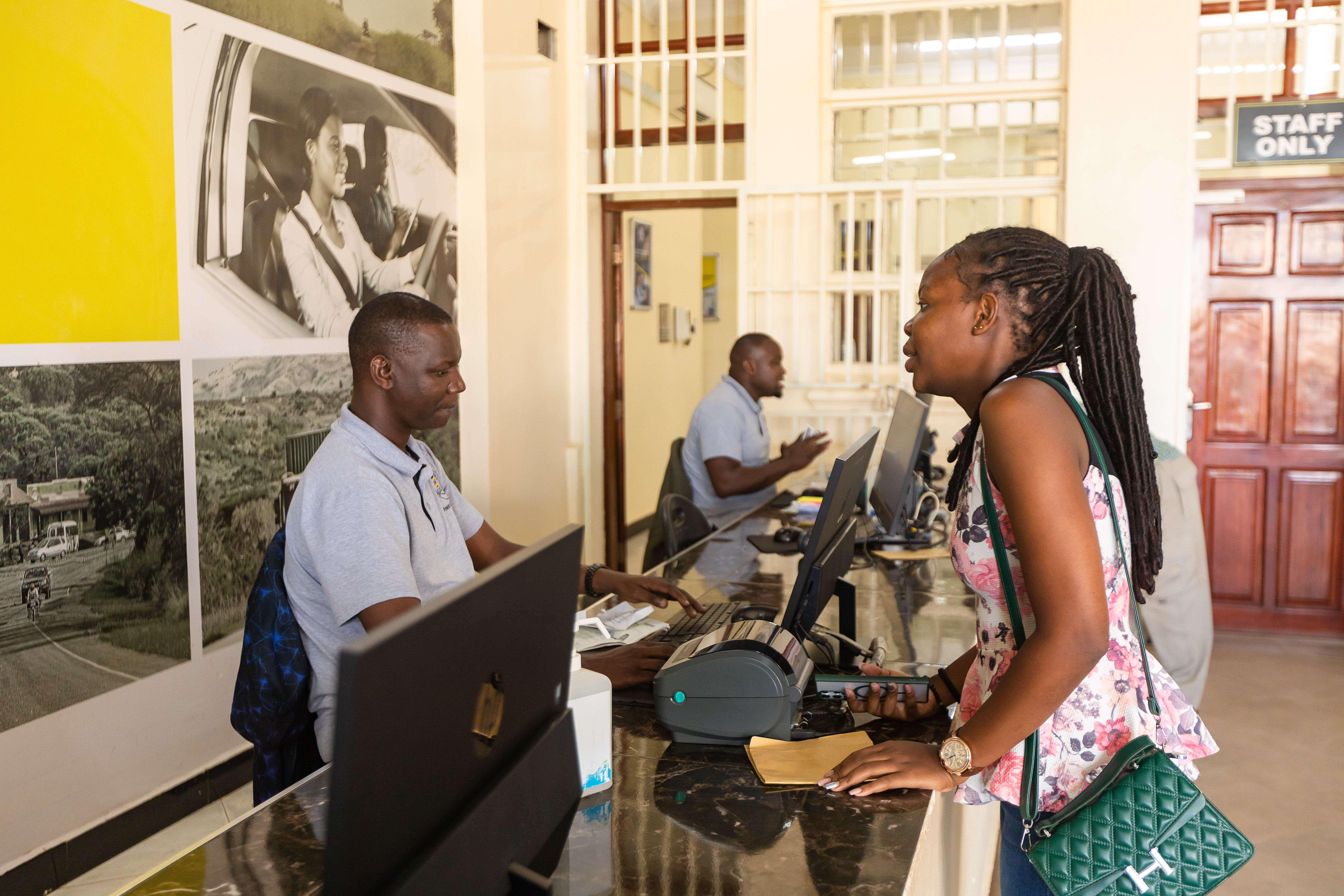
Blaming “outdated printing machines”
Ugandans continue to doubt whether NIRA will come to the efficiency partnership any time soon. Spokesperson Osborn Mushabe, despite multiple promises to answer questions regarding the observed chaos and corruption at NIRA, never responded, but new executive director Rosemary Kisembo vehemently disputed all accusations against her office when reached by phone. Blaming outdated printing machines and lack of funding from government, she demanded details of the specific cases of affected individuals affected so that she could “deal with them on a case by case basis.” When ZAM refused to reveal the identity of its sources, she suggested a physical meeting, but thereafter stopped responding to attempts to set up such a meeting.
Seventeen million citizens are not registered for elections
On 25 October this year, Kisembo told Parliament that NIRA had not commenced the outstanding elections registration of 17,2 million persons because of “funding gaps.” A House committee on Defence and Internal Affairs was also told by Kisembo that a “funding gap” had stalled mass renewal of national identification cards for 15,8 million persons, whose cards will expire in August 2024. This makes it unlikely that NIRA will be able to submit a register of citizens to enable Uganda’s electoral body to compile, maintain, revise, and update the voters register by September 2024, which it must do, according to Uganda’s roadmap for general elections in 2026. This, in turn, means that Winnie Tumwesigye, still living hand to mouth, may not get to vote in the elections in her country once again.
The Ministry of Internal affairs stops responding
Ministry of Internal Affairs spokesperson Simon Peter Mundeyi was reluctant to respond to complaints about NIRA. “The two (NIRA and UDLS) perform totally different roles,” he says in an initial response. “(NIRA) carries out citizenship verification, which is a tedious and lengthy process that sometimes involves consultations with stakeholders such as local councils and parents. Meanwhile, there is no citizenship verification done at the driver license office.” Mundeyi then stops answering questions, including why he thinks that NIRA director Kisembo did not mention workload, but blamed old printing machines and lack of money. Questions pertaining to citizens’ reports of extortion by NIRA officials and exposés in Ugandan media about mismanagement of funding are also left unanswered, as are questions regarding the reason UDLS has been equipped with performance monitoring, and accountability and transparency mechanisms, yet no other state documents office (NIRA or passports service) has been similarly reformed.
Read all the investigative articles in this series:
Public Servants | Kenya, Uganda, Nigeria, Ghana, Malawi
Malawi | A Reduction In Deaths

